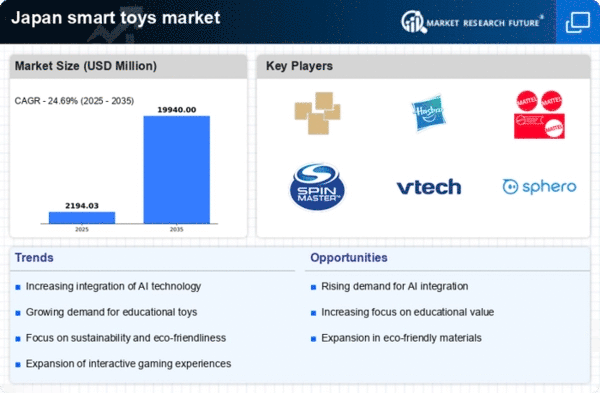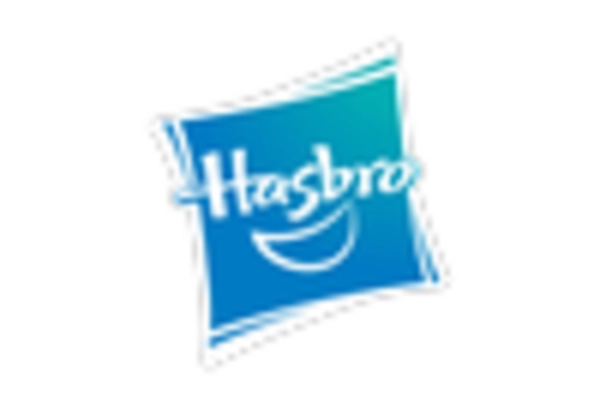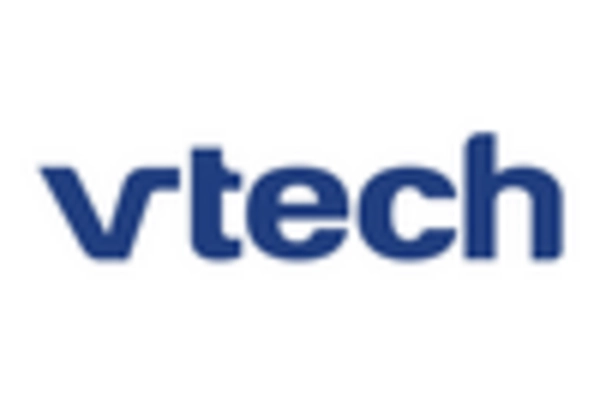Rising Disposable Income
In Japan, the rising disposable income among households is significantly impacting the smart toys market. As families experience increased financial flexibility, they are more inclined to invest in high-quality, innovative toys that offer educational benefits. This trend is particularly evident in urban areas, where parents prioritize the development of their children through engaging and interactive play. The average household income in Japan has seen a steady increase, which correlates with a growing demand for premium smart toys. This shift in consumer behavior suggests that the smart toys market is likely to expand as families seek products that combine entertainment with learning.
Influence of Digital Natives
The emergence of digital natives, children who have grown up with technology, is reshaping the smart toys market in Japan. These children are accustomed to interactive and digital experiences, which influences their preferences for toys. As a result, manufacturers are focusing on creating products that resonate with this tech-savvy generation. The demand for toys that integrate seamlessly with smartphones and tablets is on the rise, reflecting a shift in play patterns. This trend suggests that the smart toys market must adapt to meet the expectations of a generation that values connectivity and interactivity in their play experiences.
Growing Environmental Awareness
Environmental consciousness is becoming a pivotal driver in the smart toys market in Japan. As consumers become more aware of sustainability issues, there is a rising demand for eco-friendly toys. Manufacturers are responding by developing products made from sustainable materials and implementing environmentally responsible practices. This shift is not only appealing to environmentally conscious parents but also aligns with educational goals, as many smart toys now incorporate themes of sustainability. The smart toys market is likely to see growth as brands that prioritize eco-friendliness gain favor among consumers, reflecting a broader societal trend towards sustainability.
Technological Advancements in Play
The smart toys market in Japan is experiencing a surge due to rapid technological advancements. Innovations in artificial intelligence (AI) and machine learning are enabling toys to interact more intelligently with children. This interactivity not only enhances playtime but also promotes learning through engagement. The integration of augmented reality (AR) and virtual reality (VR) is also becoming prevalent, allowing children to immerse themselves in interactive environments. As of 2025, the market is projected to grow at a CAGR of approximately 15%, driven by these technological enhancements. Parents are increasingly seeking toys that offer educational value, which aligns with the evolving expectations of the smart toys market.
Increased Focus on Child Development
The smart toys market in Japan is benefiting from a heightened awareness of child development among parents and educators. There is a growing recognition of the importance of play in cognitive and social development, leading to a demand for toys that facilitate learning. Educational institutions are also incorporating smart toys into their curricula, further legitimizing their role in child development. Reports indicate that approximately 70% of parents are willing to invest in toys that promote skills such as problem-solving and creativity. This trend indicates a robust future for the smart toys market, as products that align with developmental goals are increasingly sought after.

















